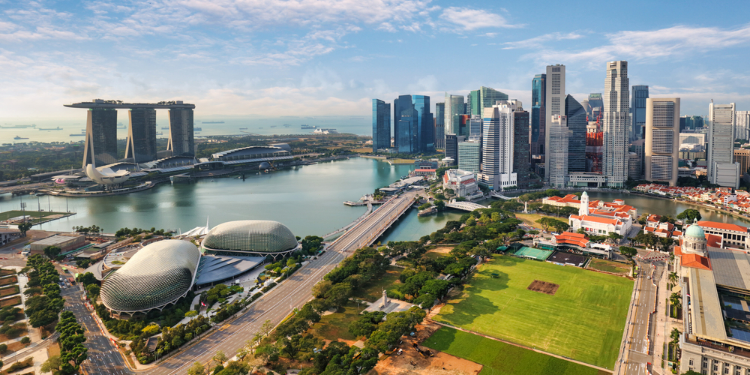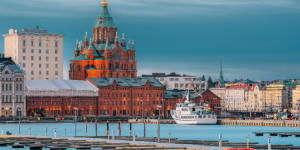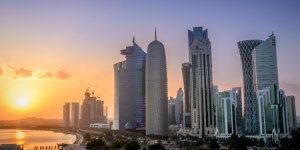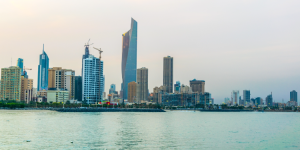
Singapore's Ministry of Manpower has announced a new 5-year Overseas Networks & Expertise Pass (ONE Pass) for top talent who earn at least 30,000 Singaporean dollars (21,400 USD) a month or have exceptional achievements in business, the arts, sports, academia, science and tech. This visa aims to attract the cream of the crop of expats after the economic impact of the pandemic. It is needed to solve the country's labor shortage, drive economic growth and bring down inflation.
Who is eligible for the ONE Pass?
The main eligibility criterion is income. The applicant must have earned at least 30,000 Singapore dollars (equivalent to about 21,400 US dollars) as fixed monthly salary in the previous year, or they must receive a fixed monthly salary of the same amount from their future employer in Singapore.
A fixed monthly salary includes a basic salary and fixed monthly allowances (e.g., housing and transport allowances). Variable income like overtime payments, productivity bonuses, earnings from freelance work, gratuity upon retirement or discharge, etc., cannot count as part of this 30,000 SDG threshold.
As it can be seen, the ONE Pass program is limited to employees – the self-employed with fluctuating income cannot apply. It's also limited to an elite of highly well-paid employees. To put things into perspective, in Switzerland, where salaries are among the highest in the world, the average monthly salary is around 6100 USD (about 6000 Swiss francs). That is only about 30% of the income threshold required by the ONE Pass.
Those eligible are, hence, likely to be C-suite executives (e.g., CEOs, CFOs), top lawyers, and specialist doctors and dentists (e.g., anesthesiologists and cardiologists), among other top-earning jobs.
There is one exception to the income threshold: individuals with exceptional achievement in business, the arts and culture, STEM, academia and research. These candidates would be treated similarly to applicants for the United Kingdom's Global Talent visa or the United States' Individuals with Extraordinary Ability or Achievement visa (O-1 Visa). It would apply, for example, to athletes with Olympic medals, dancers who've performed in the world's ballet companies, or academics who've won prestigious fellowships and prizes (e.g., McArthur Fellows in the US).
What are the benefits of the ONE Pass?
The first advantage is that the ONE Pass is valid for more years than other Singaporean work visas. Upon being issued, it is valid for 5 years. After this period, it can be renewed for 5 more years. Application for renewal can be made an unlimited number of times, which means that the expat can de facto settle down for good in Singapore.
To be eligible for renewal, the expat must still have been earning 30,000 SGD per month during their five years in the country, or they must have created a business that employs at least five locals who are paid at least 5000 SGD (about 3500 USD) per month.
In comparison, these are the period of validity of other Singaporean work visas: 2 years for the Tech Pass (for tech entrepreneurs and technical experts), 1 year for the EntrePass (for entrepreneurs who want to start a business backed by venture capital or innovative technologies), 3 years for the Personalized Employment Pass (for high-skilled professionals), between 2-5 years for the Employment Pass (for professionals earning at least 5000 SGD – 3500 USD – per month), and 1-2 years for the S-Pass Scheme (for mid-skilled employees earning at least 2200 SGD – 1500 USD – a month),
The second advantage of the ONE Pass visa is that its holder can create, operate or work for multiple companies simultaneously. A third advantage is that it's easy for the visa holder's spouse and children under 21 (i.e., dependents) to also get a job in Singapore. The dependent's prospective employer or employment agency only needs to apply for a Letter of Consent for them. Another advantage is that the ONE Pass has no quota/cap on the number of candidates. In comparison, some other visas, like the S-Pass, are restricted by a quota.
Why does Singapore need more top talent?
Why is Singapore introducing this new visa, which will start accepting applications from January 2023? Since the pandemic, Singapore has been experiencing a talent crunch and a tight labor market – this means that there are more vacancies than available workers. The imbalance between the demand for and supply of workers stands at a ratio of 1:2.42, the highest since 1998.
An article by Michelle Jamrisko in Bloomberg explains how the lull in migration during 2020 and 2021 has particularly affected the higher end and lower end of the income ladder. Meanwhile, the availability of workers at the middle-income level is more stable.
The ONE Pass is, to a great degree, targeting highly-paid expats who are leaving Hong Kong. Hong Kong has been experiencing an expat exodus since 2016 because of the city's political instability, draconian Covid lockdown, and high cost of living. While Singapore also has a high cost of living, it is very politically stable and has more open borders (crucial for the jet-setting class). In 2021 alone, nearly 1000 finance professionals relocated to Singapore from Hong Kong, according to the data of the recruitment firm Robert Walters.
It's important to attract these high earners to curb inflation and boost economic growth. The Singaporean Ministry of Trade and Industry (MTI) lowered the country's GDP growth forecast for 2022 from 3-5% to 3-4%. The inflation rate is also higher than it has been in over a decade – 4.4% core inflation in June 2022, higher than economists' forecasted 4.2% (Reuters). Inflation is affecting food, retail, utilities and services.
The Monetary Authority of Singapore (MAS), the country's central bank, has tightened its economic policy to slow down inflation. However, the talent crunch might be starting to drive a wage-inflation spiral: as workers are currently able to negotiate for higher salaries, wages are rising and leading to higher price inflation. The current problem of labor supply needs to be solved to reduce the risk of a wage-inflation spiral. The new ONE Pass is part of the strategy to solve this issue.



















